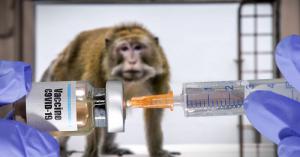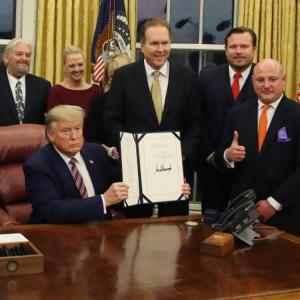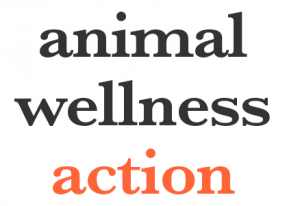Rubio, Scott, and Buchanan-Backed Legislation to Lower Drug Prices and End Animal Testing Mandates at FDA Passes Senate
Groundbreaking Legislation has the Potential to Spare Animals, Bring Safer and Better Treatments to Patients, and Drive Down Drug Prices
“I would like to see research move away from the animal model, not only for the animals but to promote faster delivery of cures for devastating diseases.”
WASHINGTON, DC, UNITED STATES , October 4, 2022 /EINPresswire.com/ -- On Thursday, the U.S. Senate passed the FDA Modernization Act, S. 5002 - that was introduced on the same day - without dissent, taking a major step toward enacting a policy that would dramatically reduce testing on dogs, primates, and other animals in the years ahead. The measure would also help reduce drug costs and time to market by ending an unnecessary and burdensome federal mandate that drives up drug costs and deliverability.— Rep. Vern Buchanan, R-Fla.
The bill, first introduced in the House in 2021 by Rep. Vern Buchanan, R-Fla., H.R. 2565, would eliminate a 1938 Depression-era federal mandate that requires animal testing for all new drugs approved by the Food and Drug Administration and has 97 bipartisan cosponsors in the House.
S. 5002, introduced in the Senate by Sens. Rand Paul, R-Ky., Rick Scott, R-Fla., and 9 other Senators is a modified version of the original bill, S. 2952, that was cosponsored by Sen. Marco Rubio, R-Fla.
The Senate-passed bill also includes language from an additional proposed reform, the Reducing Animal Testing Act, authored by Senator Ben Ray Lujan, D-NM, to amend the Public Health Service Act to remove the animal testing requirement for biosimilars. S. 5002 mirrors provisions of the original FDA Modernization Act provision approved as an amendment to an FDA legislative package taken up in June by the Senate Health, Education, Labor and Pensions (HELP) Committee.
“I would like to see research move away from the animal model, not only for the animals but to promote faster delivery of cures for devastating diseases,” said Rep. Buchanan, R-Fla. “That means research should focus on human biology, not animal biology. Our bill does just that.”
“Leaders of the Senate from both parties recognize that the United States must lift an archaic animal-testing mandate for drug development and replace that strategy with 21st-century methods grounded on human biology,” said Wayne Pacelle, president at the Center for a Humane Economy. “This is the biggest policy development in Congressional history on the fight to replace animal testing with morally and scientifically superior methods.”
“The FDA Modernization Act is a win-win for people, animals and industry; and it has the potential reduce drug costs and ease the pain for American voters during an era where inflation has caused the average American family’s living costs to skyrocket,” said Marty Irby, executive director at Animal Wellness Action who was named one of The Hill's Top Lobbyists for 2019-2021. "We applaud both Sens. Rubio and Scott for their tireless work and appreciate them shepherding this groundbreaking legislation to passage in the Senate, and applaud Rep. Buchanan's leadership on this issue as well."
“The FDA Modernization Act 2.0 will accelerate innovation and get safer, more effective drugs to market more quickly by cutting red tape that is not supported by current science, and I’m proud to have led the charge with our fellow cosponsors. The passage of this bipartisan bill is a step toward ending the needless suffering and death of animal test subjects – which I’m glad both Republicans and Democrats can agree needs to end,” said Dr. Rand Paul, R-Ky.
Animal Wellness Action, the Center for a Humane Economy, and nearly 200 organizations, medical associations, biotech, and patient advocacy groups back the FDA Modernization Act and are calling on the full U.S. House to take up the measure. This groundbreaking legislation has the potential in the coming years to reduce the use of millions of animals and to deliver safer, more effective drugs to patients.
Other cosponsors of S. 5002 include Senators Mike Braun, R-Ind., Susan Collins, R-Maine, Angus King, I-Me., Roger Marshall, R-Kansas, Alex Padilla, D-Calif., Mike Crapo, R-Idaho Bernie Sanders, I-Vt., Ben Ray Lujan, D-N.M., and Tommy Tuberville, R-Ala.
Members of the Florida Congressional Delegation that have cosponsored Buchanan's H.R. 2565 include Reps. Kathy Castor, Matt Gaetz, Carlos Gimenez, Brian Mast, Maria Salazar, Michael Waltz, Debbie Wasserman-Shultz, and former Rep. Charlie Crist who cosponsored the measure before leaving Congress in August.
Data shows that it typically takes 10 to 15 years and an average investment of $1 billion and up to $6 billion for a new drug. Animal tests are non-predictive of the human response to drugs. This antiquated process of pharmaceutical innovation slows delivery of palliatives and cures for patient groups, drives up drug costs, and sacrifices countless animals.
Marty Irby
Animal Wellness Action
+1 202-821-5686
email us here
Visit us on social media:
Facebook
Twitter
Sen. Rand Paul speaks on the FDA Modernization Act
Legal Disclaimer:
EIN Presswire provides this news content "as is" without warranty of any kind. We do not accept any responsibility or liability for the accuracy, content, images, videos, licenses, completeness, legality, or reliability of the information contained in this article. If you have any complaints or copyright issues related to this article, kindly contact the author above.



